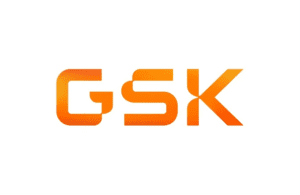 FDA has approved Jemperli from GSK (NYSE:GSK) for adult patients with mismatch repair-deficient or advanced endometrial carcinoma (dMMR).
FDA has approved Jemperli from GSK (NYSE:GSK) for adult patients with mismatch repair-deficient or advanced endometrial carcinoma (dMMR).
GSK predicts Jemperli will generate peak sales of $1.4 billion to $2.8 million.
The drug is indicated for adults with dMMR-related or advanced endometrial carcinoma who have progressed after a previous platinum-containing regimen. This drug is not suitable for those who need curative surgery or radiation.
Approved based on a Phase 1 study
The FDA approved the drug based on data from GARNET Phase 1, in which it had a 45.4% overall response rate. The single-arm, multicenter, open-label study of Jemperli monotherapy showed that 85.9% of patients experienced a response within 12 months. 54.7% had a response lasting at least 24 months.
Data from the ongoing GARNET trial’s A1 cohort supported Jemperli’s approval. This trial evaluated Jemperli as a monotherapy in patients with advanced solid tumors. The drug was assessed in the A1 cohort of 141 patients suffering from advanced or recurrent endometrial carcinomas that had progressed after prior platinum-containing treatment.
Jemperli monotherapy is being evaluated in advanced solid tumors as part of the ongoing GARNET Phase 1 study.
Jemperli (dostarlimab-gxly), a programmed-death receptor-1 (PD-1)-blocking antibody, binds to the PD-1 receptor. It then blocks its interaction with the PD-1 ligands PD-1L1 and PD-1L2.
Endometrial cancer is common
A 2020 BMJ article states that women with advanced or recurrent endometrial cancer (EC) are often limited in their treatment options and have poor outcomes. This paper presented the results of Phase 2 studies of durvalumab in women with advanced, mismatch repair-deficient or repair-proficient endometrial carcinoma. Durvalumab, also known as Imfinzi, is not currently approved for endometrial cancer.
Globally, endometrial cancer is one of the most prevalent gynecologic cancers. In 2018, there were 382,069 new endometrial canver (EC) cases and 89,929 deaths.
GSK estimates that each year, there are 417,000 new cases worldwide. According to GSK, the incidence of this type of cancer will increase by nearly 40% by 2040.